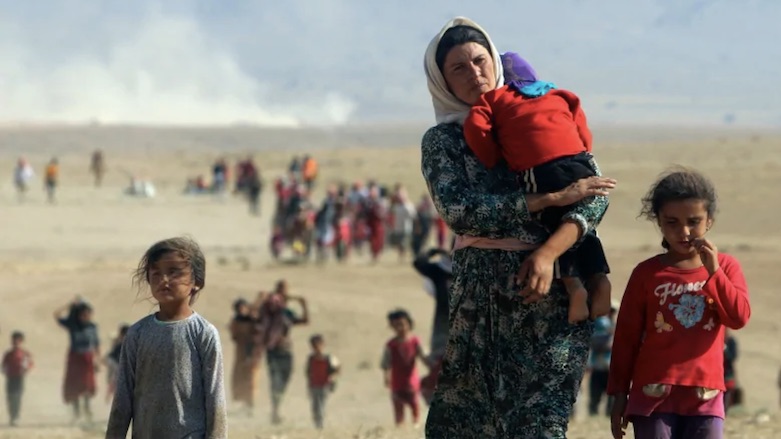Kurdistan reports latest numbers of Yezidis rescued from ISIS

ERBIL (Kurdistan 24) – The Kurdistan Regional Government's (KRG) office dedicated to the rescue of Yezidis (Ezidis) kidnapped by the Islamic State announced on Wednesday its latest statistics on affected members of the religious minority community.
The Duhok-based Ezidi Rescue Office explained in a statement that, since 2014, it had “rescued 3,537 Ezidis from ISIS: 1,201 women and 339 men, including 1,043 girls and 954 boys.”
“The data indicates that 2,880 victims remain missing so far: 1,304 women and 1,576 men,” it continued, claiming that the statistics had been verified by the United Nations and do not reflect many casualties or vast material losses in residential and agricultural land, residences, businesses, livestock, cars, and other property.
“The number of displaced reached 310,000 individuals during the attack on Sinjar (Shingal), with 1,293 killed in the first days of the genocide,” adding that "the number of mass graves discovered in Shingal so far is 83, in addition to dozens of individual gravesites."
“2,745 children were orphaned and 68 holy shrines and temples were demolished by ISIS. Furthermore, an estimated 100,000 Ezidis migrated outside the country,” the statement pointed out.
The emergence of the Islamic State and its violent assault on the Ezidi-majority city of Shingal in 2014 led to the displacement of hundreds of thousands of Ezidis. Most of them fled to the Kurdistan Region, while others resettled to neighbouring countries in the region or Western states.
Others were not as lucky and remained stranded in the war zone, where they experienced atrocities and mass executions at the hands of the extremist group for years. Militants subjected women and girls to sexual slavery, kidnapped children, forced religious conversions, executed scores of men, and abused, sold, and trafficked females across areas they controlled in Iraq and Syria.
Read More: PHOTOS: Yezidis hold candlelight vigil to mark genocide anniversary
Before the 2014 attack, there were roughly 550,000 Ezidis in the Kurdistan Region and Iraq.
Editing by John J. Catherine
